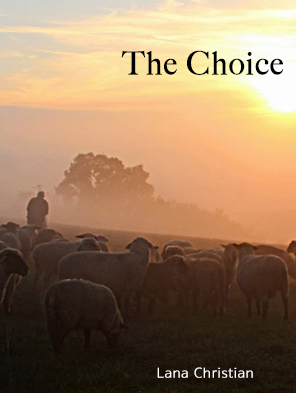
Do you ever wonder why God puts up with us?
I do.
To answer that question, we need to see ourselves through His eyes. And realize that He entrusts us with a bit of His extraordinary.
What does that mean for us?
At least four things.
God’s fingerprints are on our DNA.
Psalm 139:13 (NIV) says, “For you created my inmost being; you knit me together in my mother’s womb.” This verse depicts two actions by God: a creation and a covering.
“You created” alludes to a skilled craftsman’s intricate creation made from many parts.
The second action, “You knit me together,” is more properly translated “You covered me” or “You wove me.” That conjures images of weaving cloth or making a basket, but the original word also connotes protection, as a booth or hut woven (knit) together from branches.
If that sounds vaguely familiar, it’s a perfect description for the huts—temporary shelters called sukkahs—that the Jews erect to observe Sukkot (The Feast of Tabernacles, also known as the Feast of Shelters).
The sukkahs commemorate God’s “covering” of the Israelites in bringing them out of Egypt and the temporary dwellings they lived in during the Exodus. (See Leviticus 23:42-43.) The sukkah is a fragile dwelling that points to God’s protection.
What a beautiful image of how God created us and protected us before anyone knew we existed!
God started imparting His wisdom to us before we were born.
Does that blow your mind? It does mine. Psalm 51:6 (NIV) says, “Yet you desired faithfulness even in the womb; you taught me wisdom in that secret place.” The Creator of the universe was tutoring us from Day One of our lives!
We read in the Bible about God directly teaching people—such as Paul during his three years of isolation in Arabia. But Psalm 51:6 says God teaches every human being about Himself and shares His wisdom with us while we’re in the womb. Hmm. Maybe there’s more to “faith of a child” than meets the eye.
So if God’s wisdom is in us, why would we hesitate to tap into it? Why would we ever think our way is better?
God gives us all we need to participate in His divine nature.
That is so bold it almost sounds audacious. To be clear: we don’t become demigods (like some religions claim). The apostle Peter put it this way: “His divine power has given us everything we need for a godly life through our knowledge of him who called us by his own glory and goodness. Through these he has given us his very great and precious promises, so that through them you may participate in the divine nature, having escaped the corruption in the world caused by evil desires” (2 Peter 1:3-4, NIV)
That’s a lot to unpack. A godly life is a realization of God’s abiding presence. We gain that through our knowledge of Him, which God started teaching us before birth. God’s glory and goodness are transforming our lives to be more Christ-like. That process (the great and precious promises) will be completed and perfected when we get to heaven—allowing us to participate in God’s divine nature—that is, to be in the intimate relationship with God that He originally designed for us at the dawn of creation.
God promises we will do extraordinary things.
“Very truly I tell you, whoever believes in me will do the works I have been doing, and they will do even greater things than these, because I am going to the Father” (John 14:12, NIV).
Does that mean we’ll do bigger miracles than Jesus could do? No. When Jesus was on earth, His ministry was bound by space and time. Christ went to heaven so the work of the Church could start at Pentecost. With Christ in heaven, He is interceding for us and enabling the works of the Church universal to be greater than what took place when He was on this earth. What an incredible charge and privilege He has given us!
Conclusion
Fellow author Terri Gillespie said, “Being entrusted with a tiny part of our Father’s character is heady stuff. Remembering that we would not have this gift were it not for Him should keep us humble and grateful.”
Extraordinary.





Leave a Comment